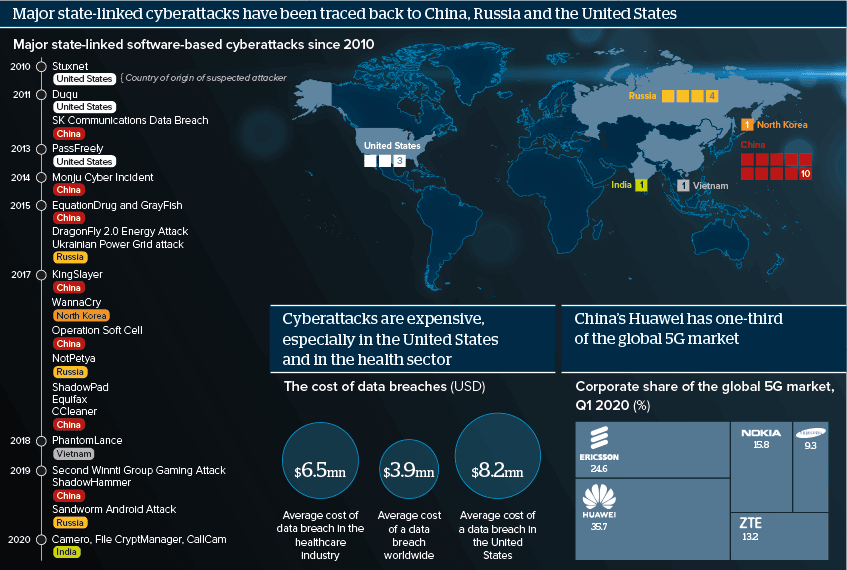Cyber threats drive global technological decoupling
5G relies heavily on software and will be the core underlying infrastructure for all future digital activities
Source: Atlantic Council ‘Breaking Trust’ dataset; IBM; Delloro
Outlook
International agreement on state behaviour in the cyber domain is not forthcoming as the interests of the world’s sophisticated cyberactors are currently irreconcilable.
China and Russia are honing their offensive cyber capabilities. Both are focused on extracting COVID-19-related research since the start of this year, but post-pandemic China’s cyber campaigns will re-target Western intellectual property and other valuable commercial information, while Russia will pursue anti-Western political manipulation.
Technological decoupling, most prominent in geopolitical divisions over Huawei’s role in building 5G telecommunications infrastructure, is part of the West’s defensive cybersecurity strategy. As global supply chains unravel, emerging markets will also be forced to pick sides.
Impacts
- US-China technology rivalry will outlive the November US elections, although a Democratic White House would tone down the rhetoric.
- If Germany bans Huawei, several currently agnostic EU governments will follow suit.
- Public attribution of serious cyberattacks to specific state actors and their proxies will increase.
- Russia will probably seek to interfere in the November US presidential elections.
See also
- Corporate competition in 5G set to intensify - Jul 30, 2020
- Russia and China lead on offensive cyber skills - Jul 23, 2020
- More graphic analysis
